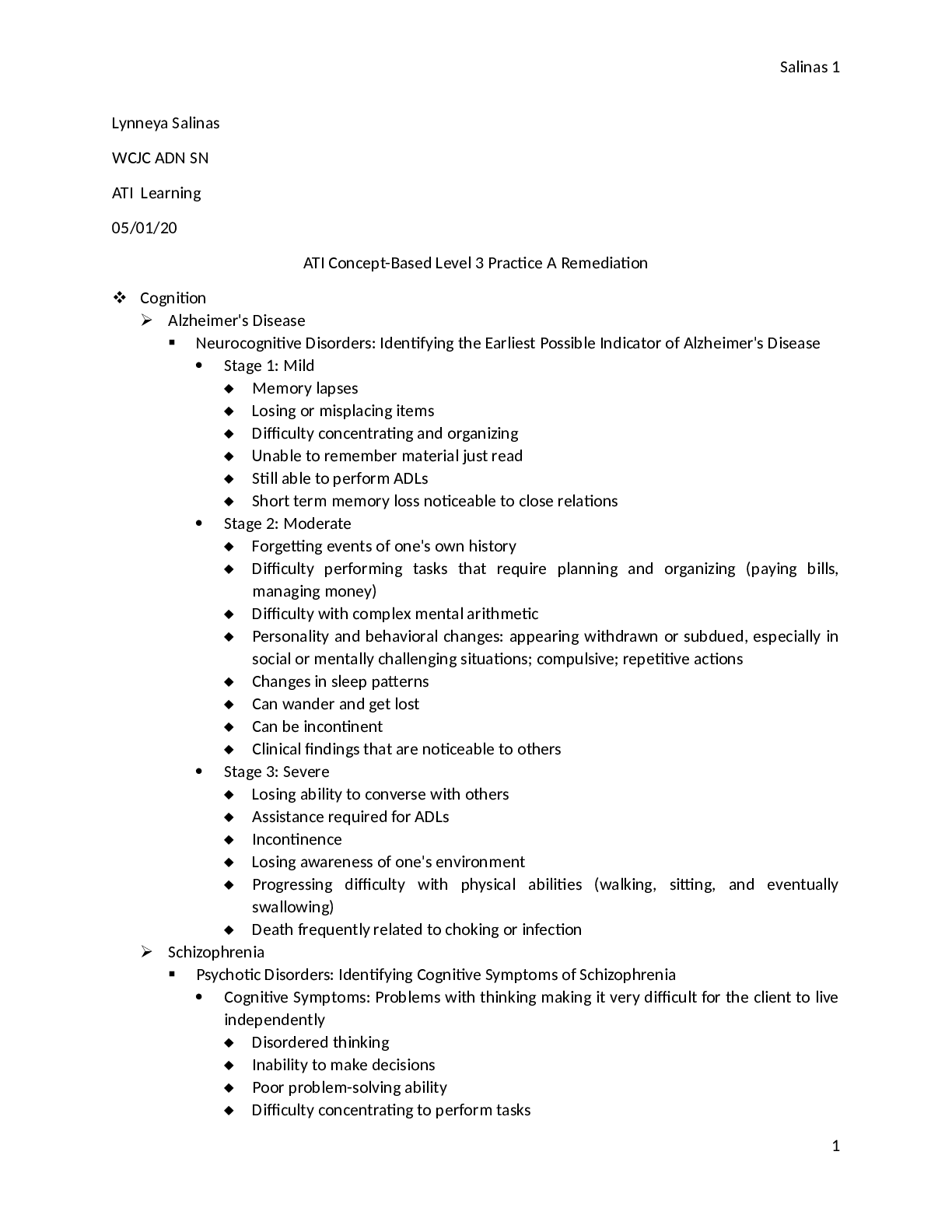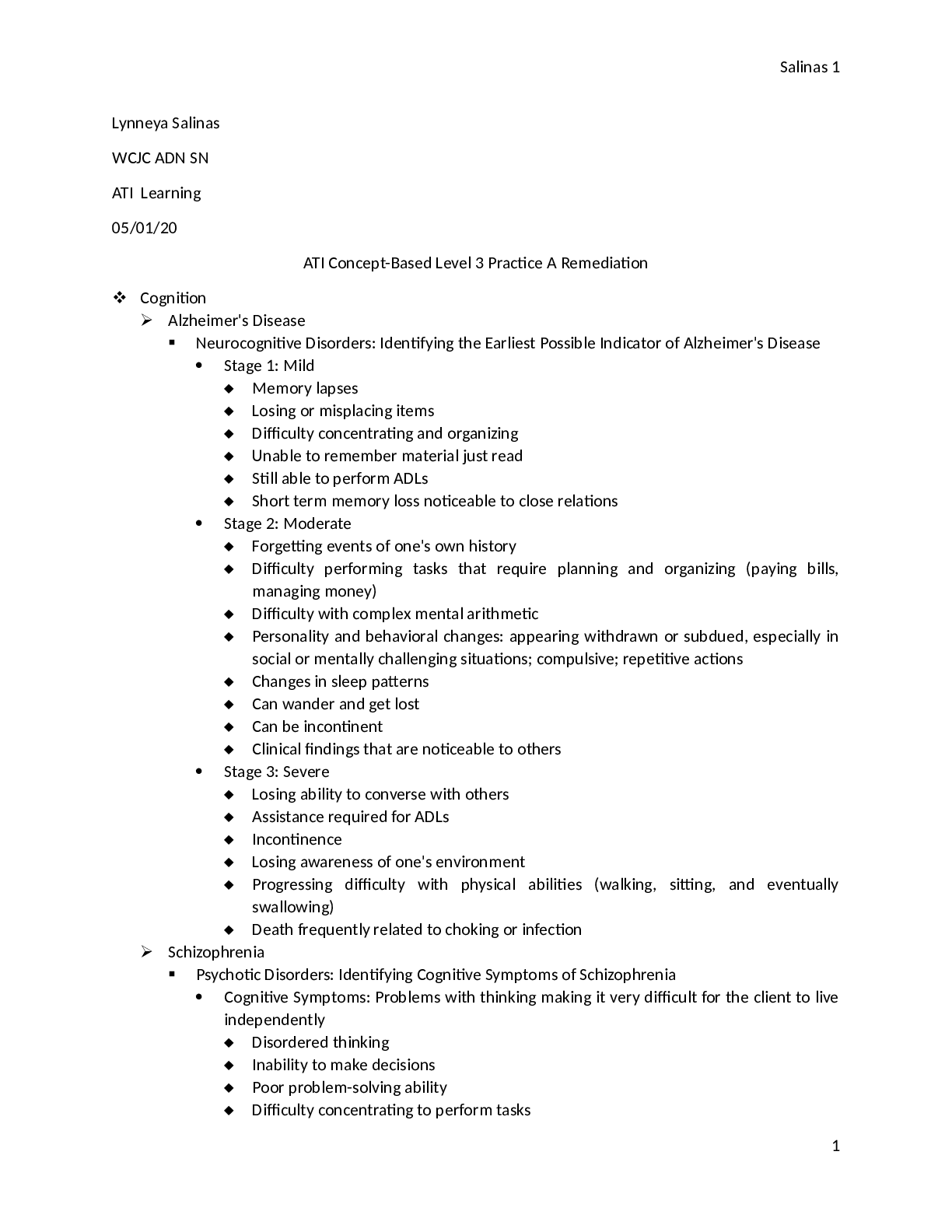ATI Level 3 Practice A Remediation
Course
Project Management
Subject
Chemistry
Category
ATI Proctored
Pages
11
Uploaded By
ATIPROS
Preview 4 out of 11 Pages


Download all 11 pages for $ 5.53
Reviews (0)
$5.53
